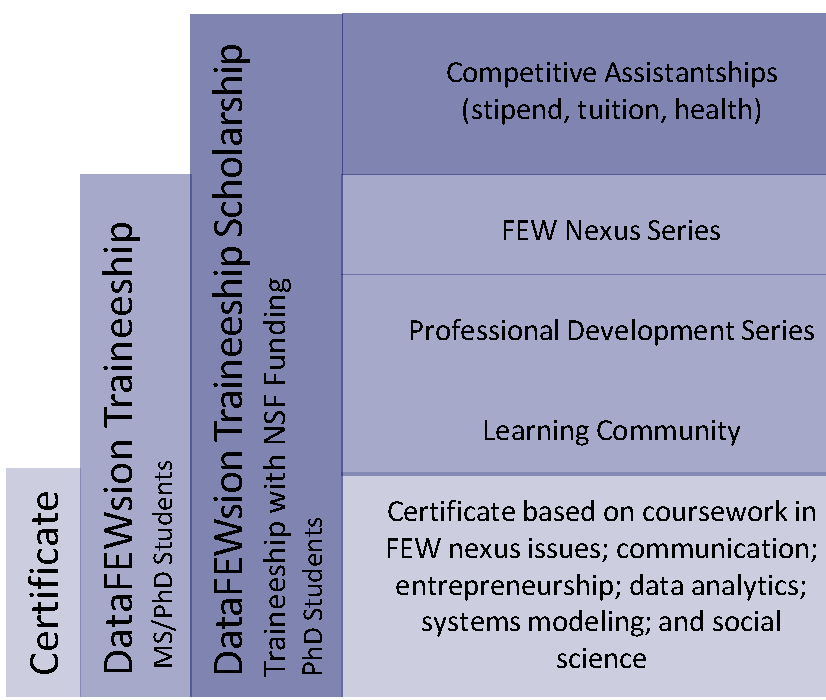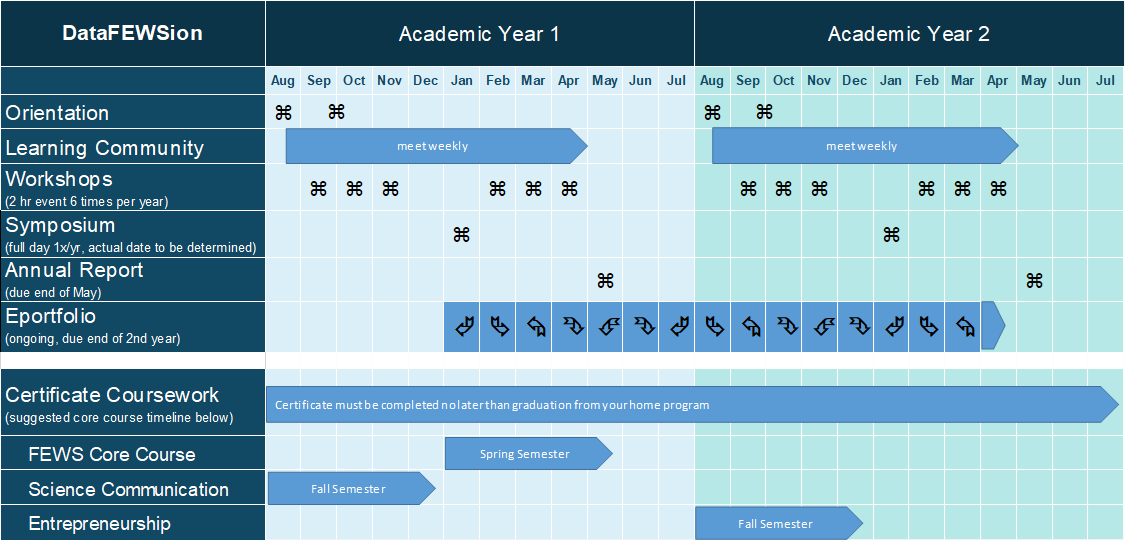The DataFEWSion Traineeship is an educational model aimed at creating emerging leaders in the FEW system nexus.
Benefits to the Trainees
- Opportunity to collaborate on world-class interdisciplinary research
- Participate in a Graduate Learning Community of highly motivated and talented graduate students
- Develop technical language across disciplines with data science and decision modeling at the core
- Develop a knowledge base to address complex issues and affect change, with an awareness of social, political, and economic impacts
- Develop communication skills to address a diverse audience from producers to policymakers to industry executives
- Prepare for various career paths in academia, industry, NGOs, government, or entrepreneurship
Traineeship Components
The DataFEWSion program is structured to develop new leaders with technical knowledge, professional skills, and cross-disciplinary communication.

3 Levels of participation:
Certificate:
You may opt to only obtain the graduate certificate in “Data-Driven Food, Energy, and Water Decision Making”
Traineeship:
The traineeship incorporates the learning community and certificate to make the most of a comprehensive professional development program around the FEWS nexus
Trainee Stipend, Tuition, Fees & Healthcare package:
This funding is available to exceptional Ph.D. students who are US citizens or permanent residents.
Key components of the Traineeship:
Workshop series:
- FEWS nexus series: understanding the complexities and interacting with the stakeholders involved.
- Professional development series: communication tools & skills to effectively present innovation.
- Graduate Learning Community: interdisciplinary sharing, collaboration, and peer review.
Graduate certificate:
Includes coursework in FEWS nexus issues; communication; entrepreneurship; data analytics & visualization; system modeling; and social science.
Annual Spring Symposium
Each year the DataFEWSion Research Symposium provides the trainees an opportunity for professional presentation of their research, plus interactions with a diverse group of stakeholders, such as producers, industry, policymakers, agencies, and other researchers.
